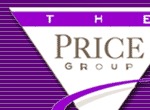
 |
 |

|
|
|||
|
Leadership Ethics: More Than Just Lip Service By Bette Price |
|||
|
Just
how far do American business people bend their ethics in the name
of "just getting the business?" Far more than most businesses
would like to admit. Two years ago a survey conducted within the
sales management sector revealed these telling statistics:
Ethical
practices have always been a critical factor for businesses that
derive long-term success. Customer loyalty is only sustained when
there is the confidence that the companies customers chose to do
business with have chosen to take the high ground rather than merely
pay lip service to "doing what's right." In the light
of our recent national tragedy and the economic impact for the future,
there is little question that the integrity of one's business will
increasingly become a differentiating factor. The security of knowing
that the customer's best interests are truly at heart and that transactions
are being handled in a fair and honest manner, will determine the
loyalty of the customer. Core
principles. Ethical standards are a direct reflection of ownership's
values. Jim Copeland, CEO of Deloitte & Touche, which works
with companies worldwide, says that if you, as a leader, can honestly
answer these three questions positively, all other ethical issues
will likely fall in place: Can I trust you? Do you care about me
[the customer/the employee] as a person? Are you committed to excellence?
When ownership's core values are reflected in their operating standards,
it is more likely that there will be consistent ethical decisions.
The problem with too many companies is that they develop lofty mission
statements that are more public relations oriented than operational
oriented. Without a commitment to use such things as mission statements,
core operation principles, etc., the documents are worthless. When
they are actively used, they ensure consistency in ethical decisions.
Bill
Matthews, Managing Partner of Plante & Moran, a Michigan based
public accounting firm, takes very seriously his firm's Core Purpose,
Statement of Principles, and Commitment Statement. "Now I recognize
these are three sheets of paper," he admits, "and there
may not be a lot of difference in what they say from what you see
in a lot of places. But, what we think is the biggest difference
is that we work very hard at practicing what is said on these sheets
of paper." Matthews says that whenever the firm is faced with
a challenge of determining the right thing to do, "We say,
well, what do we say in our statement of principles? And we go back
to that. We constantly refer to that in making decisions on where
we are going." Establishing core values enable a company to
maintain control in an ethical and fair manner. Living
up to commitments. Commitment is the centerpiece of the value
system for Enherent, an IT solutions firm. It is part of the company's
ethical standards. "Whether it's a customer or a colleague,
helping people to understand what a commitment is and what it is
not is important," says CEO Dan Woodward. "Maybe I'll
try is not a commitment," he says. "You can, however,
commit to commit, like-I'll let you know by Friday if I can do that
by the following Friday. But a commitment doesn't exist unless there
is a date and time specified that something is to happen."
Woodward believes this understanding of commitment sets the stage
for trust and loyal relationships to be established. Commitment
indeed plays an integral role in customer's perceptions of a company's
ethical practices when a problem exists. Research indicates that
among the most important factors in being responsive to a customer's
problem-particularly in a service-oriented business-is the firm's
commitment to respond in a timely manner and honestly. Consistency.
Employees will easily make judgments about the ethics of leadership
based on management's handling of seemingly minor decisions. Let's
take, for example, an employee who comes to work late frequently
and is reprimanded by management. And, suppose that within the same
company one of the managers is late for work with the same frequency,
yet leadership fails to take any action. The perception becomes
that policies are established for some and broken or ignored for
others. Lack of consistency becomes an ethical issue. And, if you
think internal ethical breaches like this don't impact external
actions that reflect the overall ethics of your company, you might
want to think about it again. Sometimes
it appears that a company attains success despite their unethical
practices. Yet in reality, it sooner or later catches up with them.
And when it does, companies that lose their reputation over honesty
and integrity issues often suffer insurmountable penalties. You
may recall that when Texaco's top-level executives were exposed
discussing racist attitudes when audiotapes were leaked, the company
was forced to pay $176 million to settle a pending lawsuit-a strong
financial blow, let alone the loss from its customer base. Likewise,
when Len Roberts took over the CEO position at Shoney's, the fast
food chain, in the late 1980's, he had no idea the company was in
the midst of the largest discrimination lawsuits in history at that
time. Roberts suggested that the founder and former chairman of
Shoney's do the right thing and pay the bulk of the settlement-about
$65 million, which he eventually did. For his high ethical standards,
Roberts was let go-part of the former chairman's agreement to pay.
But, Shoney's stock fell 30 percent and Roberts was hired as Radio
Shack's Chairman and CEO. Regardless
of how small or large a company is, people simply prefer to do business
with a company that has a reputation for strong, ethical practices-a
company they feel they can trust. And the only way to get that reputation
is to be very clear about your own ethics as the company leader
and then set in place standards and processes to ensure that everyone
within the organization performs within those standards. Only then
will your company share the rewards of sustained success. Bette Price
is an author, consultant and professional speaker who is President
of The Price Group, an organization that helps organizations to
achieve long-term growth through True Leader strategies so their
leaders can sleep peacefully at night. She is the co-author of True
Leaders: How Exceptional CEOs and Presidents Make A Difference by
Building People and Profits (Dearborn Trade Press, December 2001).
Contact her at 972-404-0787 or at www.pricegroupleadership.com. |